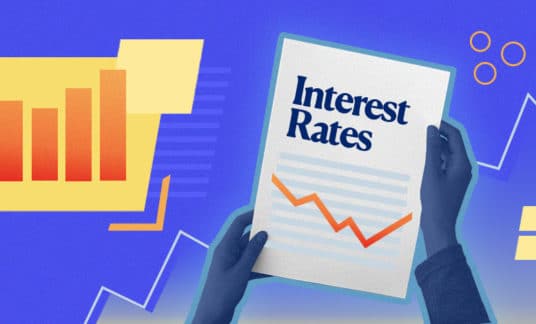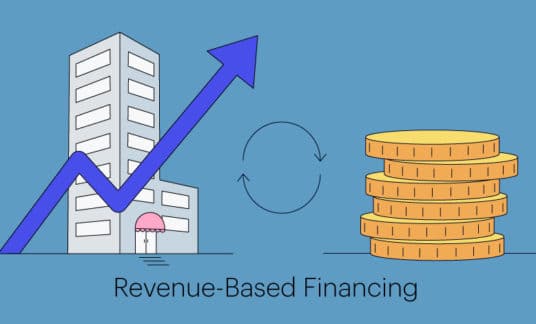Calculating your startup costs is crucial when it comes to launching your small business.
Here’s how to create a startup costs checklist, estimate your startup expenses, finance these costs and use them to claim business-tax deductions.
Startup Costs Definition
Startup costs are the expenses incurred by entrepreneurs to start a business. They can range from buying materials and hiring employees to legal fees and insurance premiums.
Some typical startup costs include:
- Incorporation fees
- Legal costs
- Leasing facilities
- Buying equipment
- Payroll
Startup costs can vary greatly by industry, location and the type of business you’re launching. Nevertheless, it’s important to understand what these costs are, their tax treatment and how to estimate them if you want to give yourself the greatest chances of success.
Types of Startup Costs for a Small Business
To calculate the expenses of the startup stage of business growth, start by creating a small business startup costs checklist. This gives you a list of categories you can use to organize your bookkeeping and your tax reporting.
A comprehensive list of expenses should include both fixed and variable costs.
- Fixed costs for a startup business are expenses that don’t vary regardless of how many units of your product or service you sell. These include costs such as labor, marketing, rent and utilities.
- Variable costs change depending on how many units of your product you sell. These can include the actual cost of your product, shipping fees and sales commissions.
Estimating Realistic Startup Costs
The exact expense required for starting a business will vary from one business model to another, but certain expenses are typical for most companies. Common startup costs include:
- Incorporation fees: These need to be filed with your state of incorporation.
- Online business startup costs: These include fees such as domain registration, website hosting, information technology support and web design.
- Payroll: This is typically the largest expense for most business models and can account for 25%-50% of your total startup budget.
- Employee benefits: This includes items such as insurance, workers’ compensation and unemployment.
- Pension and profit-sharing plans: For companies that use them, these plans can include set-up fees, administration costs and potential costs for matching employee contributions.
- Commissions and fees: Companies that pay workers non-salary income may have to pay out-of-pocket before revenue starts coming in.
- Contract labor: Companies that outsource certain functions may have to pay contractors before they have revenue.
- Marketing: These costs are a necessity for any new business and easily can exceed 10% of a new company’s revenue.
- Office rental: The cost varies with your business model and the number of employees.
- Mortgage expenses: Companies that buy property often need to borrow to fund their acquisitions.
- Office furniture and supplies: These costs can include everything from desks and chairs to computers, whiteboards, printers and servers.
- Utilities: This varies with office size, power needs and telephone usage, among other factors.
- Equipment: This category can be significant for types of businesses that rely on heavy machinery or production equipment. Some companies may require minimal office equipment.
- Depreciation and depletion: For companies with assets that lose value over time.
- Inventory: This can consume up to 20%-25% of the total budget for companies that stock physical products.
- Shipping and logistics: This expense varies by business model, with companies that ship physical products by mail incurring significantly higher expenses.
- Travel: Travel expenses vary by business model and range from travel to and from the office to airline trips to meet with clients.
- Professional consultants: Experts such as bookkeepers, tax preparers and lawyers can cost thousands of dollars a year.
- Insurance: Business insurance costs for startup companies often exceed $1,000 a year and can include items such as general liability insurance, commercial property insurance, worker compensation insurance and errors and omissions insurance.
- Taxes and licenses: These vary with business type, revenue level and tax strategy. Corporations pay a 21% tax rate and pass-through entities like LLCs and S-Corps that “pass-through” tax liability to their owners are often eligible for deductions.
How Much Does It Cost to Start a Business?
Once you have a list of expense categories, you can come up with estimates for each to calculate the cost of starting your company.
When conducting a startup cost analysis, it may be a good idea to go ahead and set up a bookkeeping system using programs such as Microsoft Excel or QuickBooks.
Templates for Excel business budget spreadsheets are available online. For best results, consider using a cloud-based app that allows you to integrate data from other financial software, such as payroll and inventory programs, which will save you time and labor on data entry.
Tracking Your Startup Costs
When setting up bookkeeping software for your business, it’s important to keep your business and personal expenses separated. You should have a business bank account and credit-card account separate from your personal accounts.
Failure to keep your personal and business finances separate can cause a number of problems:
- Financial: You may not be aware of your business or personal cash flow from month to month.
- Tax: Failing to keep finances separate can cause you to miss out on tax savings for deductible business expenses.
- Legal: Blending your business and personal finances could mean that if you ever get sued, your personal assets may be at risk.
If you want to keep track of your personal budget in the same file as your business budget, you can keep these budgets distinct by creating a separate line item or worksheet for your personal budget.

Covering Your Initial Startup Costs
Knowing your startup costs puts you in a position to develop a winning financing strategy. By combining your expense calculations with your revenue estimates, you can prepare financial statements that project how much cash you’ll need to run your business during the first few years of operation.
Once you know how much cash you need, there are a number of strategies you can use to come up with the required funding:
- Invest part of your revenue in covering your expenses
- Look for places to cut costs
- Borrow from personal financial sources such as credit cards or loans
- Apply for a business loan or line of credit from a bank, credit union or alternative lending source
- Request a microloan
- Apply for a revenue-based loan in which you repay investors with a percentage of your ongoing revenue
- Seek a grant from a government agency or private company
- Pitch your business plan to venture capitalists or other investors
- Work with a peer-to-peer lending network
You can use these strategies individually or in combination to finance your startup.
-
Claiming Startup Cost Deductions
Calculating your business startup costs is a necessary first step to take advantage of several tax deductions. Under IRS rules, most business startup and organizational costs are classified as capital expenditures, but you can opt to deduct up to $5,000 in startup costs during your first year of business, plus up to $5,000 in organizational costs incurred in forming your business, such as incorporation and legal fees.
Keep in mind certain expenses aren’t deductible as startup costs. For instance, licenses required to do business aren’t deductible as startup costs. Business assets such as building, equipment or vehicles also aren’t deductible startup expenses.
Calculating Your Startup Costs Adds Up to Success
Accurately estimating your startup costs gives you significant advantages when launching your business. Itemizing your expenses helps you organize your bookkeeping.
Calculating your expenses tells you how much financing you’ll need to get your business running. It also allows you to save money on tax deductions.











